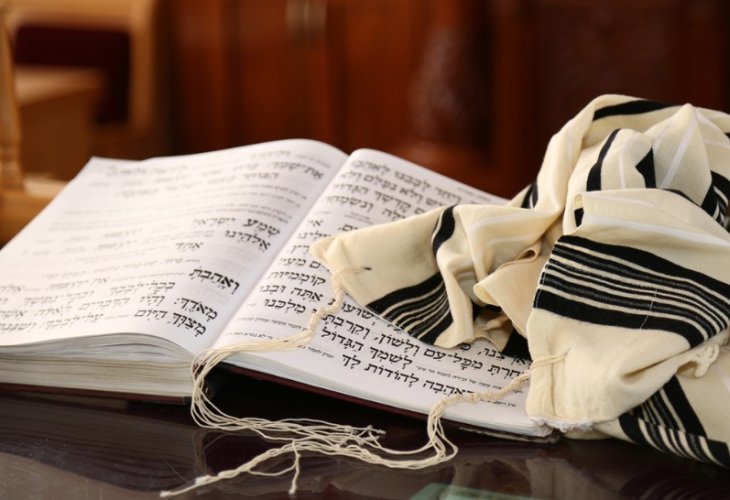Jewish Law
After You Eat: The Complete Guide to Jewish After-Blessings
From timing and portion size to the right blessing for every food, and how to end every meal with mindful gratitude

Within the category of “Blessings of Enjoyment” (Birkot HaNehenin), one is obligated to recite a blessing both before eating or drinking as well as after.
A survey conducted by Rabbi Chaim Navon revealed a significant gap between those who say the first blessing and those who remember to say the final blessing: even Jews who are careful to bless before eating often hesitate or forget when it comes to the blessing afterward.
Many people feel uncertain about the after-blessing: “Have I finished eating? Maybe I’ll eat again soon?” They wait — and often end up not knowing whether it’s already too late or still appropriate to say it.
To clarify these common questions, following are 10 essential halachot (laws) regarding the final blessing (Berachah Acharonah), based on Kitzur Shulchan Aruch and Yalkut Yosef:
1. The Three Types of Final Blessings
There are three types of blessings recited after eating, depending on what was consumed:
Birkat HaMazon – after eating bread (pat).
Berachah Me’ein Shalosh – after eating foods made from the Five Grains (when the blessing before eating was not Hamotzi), or after drinking wine or eating fruits of the Seven Species.
Borei Nefashot – after all other foods and drinks.
2. Order When Multiple Foods Are Eaten
If bread was part of the meal, Birkat HaMazon covers all other foods. If there was no bread:
Me’ein Shalosh does not exempt Borei Nefashot, so both must be recited if both food types were eaten.
Exception: if one ate both fruits of the Seven Species and other fruits, Me’ein Shalosh covers all.
When both apply, Me’ein Shalosh is recited first, followed by Borei Nefashot.
3. Two Conditions for the Final Blessing
Unlike the first blessing (which is said even for a tiny amount), the after-blessing is said only if two conditions are met:
Quantity – the person ate or drank a halachically significant amount.
Time – the food or drink was consumed within a defined time frame.
4. Required Amount and Time for Eating
To recite a final blessing on food, one must eat at least a kezayit (approx. 27 grams, about the size of a matchbox) within 3 to 7.5 minutes.
5. Required Amount and Time for Drinking
For drinks, the requirement is a revi’it (about 81–86 ml, nearly half a disposable cup) consumed within the time of “k’dei shetiyat revi’it” — essentially in one or a few gulps. If the drink was hot (like tea or coffee) and sipped slowly, no final blessing is said, since the measure was not consumed at once.
6. Eating a Whole Item
The Jerusalem Talmud states that if a person eats a whole fruit (like a grape, pomegranate seed, or almond), even if it is less than a kezayit, it may require a blessing because completeness gives it importance. However, most halachic authorities rule not to bless unless a kezayit was eaten. To avoid doubt, one should eat at least a kezayit so that a blessing is unquestionably required.
7. When to Say the Blessing
The after-blessing should be recited immediately after finishing eating or drinking. If delayed, one may still recite it:
Preferably within 30 minutes,
Up to 72 minutes at the latest.
After that, it should not be said.
If one is unsure whether they already recited it — they do not repeat it (due to the rule safek berachot lehakel — in doubt, one does not bless), though they may think it silently in their heart. Alternatively, they may eat or drink a bit more, recite the first blessing again, and afterward say the final blessing with the intent to include the previous portion.
8. Do Not Leave Before Blessing
Ideally, one should not leave the place of eating or begin other activities before reciting the after-blessing, lest they forget.
If they did leave:
For Borei Nefashot, they may bless where they are.
For Me’ein Shalosh or Birkat HaMazon, they must return to the place where they ate.
9. Bless Immediately After Concluding
The after-blessing should be said right after concluding, without delay or distraction. It is not fitting to engage in worldly matters before thanking God for the food, and one may otherwise forget to bless.
10. Eating or Drinking in Intervals
If someone plans to eat or drink intermittently over several hours, the question arises whether to bless once for everything or each time separately. The rule:
If the eating sessions are continuous or close together, one blessing before and one after covers everything.
If there are long gaps or different locations, each requires its own blessings.
Ideally, one should eat and drink in an organized manner and bless immediately after concluding. If the pauses between eating or drinking are under 30 minutes, all can be combined under one set of blessings. If the breaks are over 30 minutes, it’s better to bless separately. However, as long as the breaks are under 72 minutes, one may still bless once afterward for all.
The final blessing expresses gratitude — a spiritual pause that transforms ordinary eating into a sacred act of awareness. It reminds us that nourishment is not just physical but also an opportunity to acknowledge the Source of all life.

